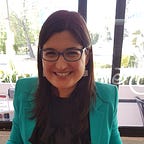Grow Your Language Vocabulary
How adults can increase working knowledge in any language
“So I’ve been making flashcards to study new vocabulary words,” Victoria begins, “but I don’t know how to really learn them. Do you have any tips? How do I learn more words in English?”
Her question is common, and one every student asks me at some point in their language learning process. And they all get the same non-sexy, non-exciting response —
“Reading is the fastest way to increase your working vocabulary. Both in your first language and in your second language.”
Then comes the common rebuttal.
“But how is it possible when I can’t understand what I’m reading?”
Choose what you read with care. Over the course of my own language learning and reading excursions, I’ve made my own plethora of mistakes. Here’s where you can learn from my personal blunders —
Forget the children’s books. When I turned 30 and decided to practice my Spanish more proactively, I turned to Dr. Seuss and Curious George books in Spanish. I opened “Big Dog, Little Dog” and read it in less than 5 minutes. It was cute, but it was short. I never read it again. The story wasn’t interesting enough to keep me wanting to re-read, nor was it long enough to really get me invested. If there were words I didn’t understand, I could figure out the main idea from the pictures, but the story was too simple to get me invested.
Next, I opened Curious George’s Adventures, and I was confused in the first several pages. Even if it was meant for kids, the sentence structures were too advanced, the vocabulary a bit too complex. I couldn’t follow the main story and I didn’t understand the verb conjugations. Filled with frustration, I closed the book. If I couldn’t even understand this dumb kid’s book how would I ever get better? I was defeated again.
With reading in a new language, we can fall into either one of these traps — finding something too simple to capture our attention — or choosing something above our comprehension that leaves us discouraged.
But here’s the good news! The beauty of the internet age means there are thousands of words ready for us. From cooking blogs to news articles to tourism sites, you can find something you’re interested in at your level.
When I gave up on children’s books, I searched several news sources in my target language and followed or bookmarked them. Since I already enjoyed reading the news, finding it in Spanish covered something I already wanted to discover.
Then, I was recommended a tourism site from México that detailed different towns and places to visit in short articles. Since this was also something I wanted to learn more about, and they weren’t more than three pages, I began reading and re-reading them for understanding.
I find the key to reading in your target language is the length. The shorter the better.
If you are going to invest your time in a novel, and after the first three pages, you realize it’s not interesting or too complex, you’ve wasted your time and possibly money.
Finding a short article or short story on a similar topic helps because after the first three paragraphs, you should be able to tell if the level matches your current vocabulary.
One great example comes from my mom, who recently began reading fairy tales in her target language. Because she already knows the story plot in her first language, she is able to match the new vocabulary to ideas she already understands. This concept is called scaffolding, or building upon current knowledge.
Instead of trying to read an article about a new concept, find one you already know well.
In general, reading builds vocabulary because you are seeing the terms in context of a story, and your brain is able to connect the terms to visual images you build within your brain to understand and remember the story.
While reading, if you have to look up more than 5 words per paragraph to even understand the article or story meaning, move on. Find a new one that has less unknown words.
Then, don’t stop to look up the new words. Integrate them into the sentence as a verb, noun, or connection word. If you keep seeing the new word and you still can’t grasp the sentence meaning, then you can look it up. But you want to try to read for 5 minutes without needing to stop.
Stopping to look up new words breaks the flow of the story and cuts off the connections being made. Instead, mark the new words on the page so that when you finish those 5 minutes of continued reading, you are able to quickly look up needed defintions.
Whatever your current reading skills, starting small is the best way to add new words to your working vocabulary.
By adding reading to your language practice, you’ll start picking up on the same terms heard in shows or podcasts. The repetitive sounds create new memory lines with those same terms.
And when you finally try out a new word in conversation, you can get immediate feedback if you’re using it correctly. But many times, those new words are learned first from text.
So start with a topic you already know and work out your skills a little at a time. One day you’ll pick up a New York Times piece or a classic novel you put down years before and realize your vocabulary has grown and you can finally follow the complex ideas.
Remember, vocabulary isn’t a grammar concept to conquer. Your vocabulary is made from all the words you know and understand — with the end goal of communicating your ideas with others.
So put those flashcards away, and start reading instead!
